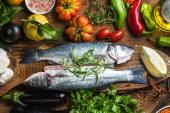More Plants, Fewer Animals: Sources of Dietary Fat Linked to Mortality Risk
Observational data spanning 24 years of follow-up support the idea that fat from grains and vegetable oil are protective.

People who consume a higher intake of fat from plant sources, especially when it comes from grains and vegetable oils, are at lower risk of dying from cardiovascular or other causes than those whose dietary fats mostly come from animal sources like dairy and eggs. The findings, from an observational study, were published online recently in JAMA Internal Medicine.
Demetrius Albanes, MD (National Cancer Institute, Bethesda, MD), who served as senior author of the study along with Jiaqi Huang, PhD (The Second Xiangya Hospital and Central South University, Changsha, China), pointed out to TCTMD that diet has an immense impact on health through “constant daily exposures throughout our entire lives.” Both quantity and quality are important, so this study was an opportunity to look more closely at how the link between mortality and dietary fat might vary by food source, he said.
The relationships turned out to be, as the paper notes, “consistent but small.”
As for why the magnitude of the differences wasn’t larger, “there are truly many reasons,” Albanes wrote in an email. “First, total dietary fat intake is only one component of daily food consumption. There are protein and carbohydrate intake, vitamins, minerals, specific foods such as dairy, meat, and vegetables, and of course importantly, total caloric intake. So parsing out the specific mortality risks for specific sources of dietary fat intake is only one portion of that dietary ‘pie,’ so to speak.”
Another factor is that the dietary questionnaires used in cohort studies like this one must be comprehensive but not too time-consuming to fill out, so they may miss some nuances in what people are eating.
Albanes stressed that, despite these challenges, research in this area continues to “shed new light on perennial issues” related to the interplay between diet and cardiovascular health.
The study follows years of evidence supporting the benefits of a Mediterranean diet—one that emphasizes extra virgin olive oil, fatty fish, whole grains, fruits and vegetables, and nuts. But the literature also shows that dietary pattern isn’t the only path toward better cardiovascular health. In fact, dietary fats are instrumental in keeping the body running smoothly.
In their paper, the researchers note that these “critical macronutrients” are not inherently a bad thing. “[They] play important roles in various biological functions including metabolic fuel, maintaining cell membrane structure, transport and absorption of fat-soluble vitamins, regulation of signal transduction, and modulation of ion channel activity,” Albanes and colleagues write, adding that not all dietary fats, however, are the same.
Differences Over Two Decades
Led by Bin Zhao, PhD, and Lu Gan, MSc (The Second Xiangya Hospital of Central South University), the researchers culled data from the National Institutes of Health–AARP Diet and Health Study, which took place from 1995 to 2019. Participants in that prospective cohort study reported details on their diets, including specific food sources of dietary fats, through a self-administered questionnaire at baseline.
The current analysis involved 407,531 adults ages 50 to 71 years at the time of enrollment (mean age 61.2 years; 56.9% male). A total of 185,111 participants died, 32% due to cardiovascular causes, during the study’s 8.1 million person-years of follow-up.
Median daily dietary fat intake was 24.7 g from plant sources and 29.3 g from animal sources. Individuals who tended to eat more plant fat were more likely to have diabetes, had a higher body mass index (BMI), and consumed greater amounts of total energy, fiber, alcohol, and fruits/vegetables. Additionally, they were more apt to report having poor or fair health and to be more physically active, and less likely to take vitamin supplements.
After multivariable adjustment for the relevant food sources and potential confounders, greater intake of plant fat was associated with lower risk of both all-cause and cardiovascular death. The difference was largest when those fats came from grains and vegetable oils (compared with from nuts and beans). On the flip side, greater intakes of total animal fat and fat specifically from dairy and eggs were each linked to higher mortality risks; there were no significant differences related to fat from red meat, white meat, or fish.
Adjusted Risks by Food Source Fat Intake: Quintile 5 vs 1
|
|
Overall Mortality |
CVD Mortality |
||
|
HR |
24-Year Absolute Risk Difference |
HR |
24-Year Absolute Risk Difference |
|
|
Plant Fat |
0.91 |
−1.10% |
0.86 |
−0.73% |
|
Fat From Grains |
0.92 |
−0.98% |
0.86 |
−0.71% |
|
Vegetable Oils |
0.88 |
−1.40% |
0.85 |
−0.71% |
|
Total Animal Fat |
1.16 |
+0.78% |
1.14 |
+0.32% |
|
Fat From Dairy |
1.09 |
+0.86% |
1.07 |
+0.24 |
|
Fat From Eggs |
1.13 |
+1.40% |
1.16 |
+0.82% |
In subgroup analyses, the relationship between animal fat and mortality was particularly evident for men, people ages 60 to 65 years, those with BMI < 35 kg/m2, and those who consumed one to three alcoholic drinks daily.
The researchers also calculated that swapping out 5% of the energy a person derived from animal fat and replacing it with 5% of energy from plant, grain, or vegetable-oil fats reduced overall mortality by approximately 4% to 24% and CVD mortality by 5% to 30%.
“These findings offer detailed insights relevant to dietary guidelines that could be useful for improving human health and related outcomes,” they conclude.
By looking at actual food sources, their study provides practical information, Albanes specified. “Of course, other large studies should retest and potentially replicate our specific findings of reduced mortality with greater grain and vegetable oil consumption.”
Even now, though, cardiologists and other clinicians can help their patients put the findings in context, he added. Among the study’s strengths are its basis in a large US population and follow-up lasting more than two decades.
Caitlin E. Cox is Executive Editor of TCTMD and Associate Director, Editorial Content at the Cardiovascular Research Foundation. She produces the…
Read Full BioSources
Zhao B, Gan L, Graubard BI, et al. Plant and animal fat intake and overall and cardiovascular disease mortality. JAMA Intern Med._ 2024;Epub ahead of print.
Disclosures
- The study was supported in part by the Intramural Research Program of the National Institutes of Health (NIH), National Cancer Institute.
- Huang reports being supported by the National Natural Science Foundation of China, the Outstanding Young Investigator Award of Hunan Province, and the Central South University Research Program of Advanced Interdisciplinary Studies.
- Albanes reports being supported by the Intramural Research Program of the NIH National Cancer Institute.
- Gan and Zhao report no relevant conflicts of interest.





Comments